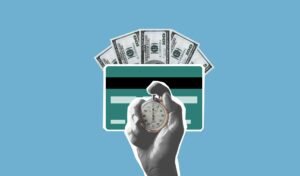Top 5 Personal Finance Books for Beginners
In today’s fast-paced world, managing personal finances effectively is crucial for achieving financial stability and success. For beginners, the journey to financial literacy can be overwhelming. To help navigate this path, we have compiled a list of the top five personal finance books that offer invaluable insights and practical advice. These books, written by experts in the field, cover essential topics such as budgeting, investing, saving, and debt management. Whether you are just starting out or looking to improve your financial knowledge, these books are an excellent resource.
1. “Rich Dad Poor Dad” by Robert T. Kiyosaki
“Rich Dad Poor Dad” is a seminal work in the realm of personal finance. Robert T. Kiyosaki shares his story of growing up with two influential father figures—his own (Poor Dad) and the father of his best friend (Rich Dad). The contrasting philosophies of these two men serve as the foundation for Kiyosaki’s lessons on financial literacy.
Key Takeaways:
- The Importance of Financial Education: Kiyosaki emphasizes the need for financial education and understanding the difference between assets and liabilities.
- Building Wealth Through Investments: The book advocates for investing in assets that generate income, such as real estate, stocks, and businesses.
- Entrepreneurial Mindset: Kiyosaki encourages readers to think like entrepreneurs and seek opportunities to build wealth outside traditional employment.
This book is particularly valuable for beginners because it challenges conventional beliefs about money and offers a fresh perspective on achieving financial independence.
2. “The Total Money Makeover” by Dave Ramsey
Dave Ramsey’s “The Total Money Makeover” is a comprehensive guide to transforming your financial life. Ramsey provides a step-by-step plan to get out of debt, build an emergency fund, and invest for the future. His no-nonsense approach and practical advice have helped millions of people achieve financial freedom.
Key Takeaways:
- Seven Baby Steps: Ramsey outlines a straightforward plan consisting of seven baby steps, including saving for emergencies, paying off debt, and investing for retirement.
- Budgeting: The book stresses the importance of creating and sticking to a budget to control spending and save money.
- Debt Snowball Method: Ramsey introduces the debt snowball method, a powerful technique for paying off debts by tackling the smallest debts first.
“The Total Money Makeover” is ideal for those who need a clear, actionable plan to regain control of their finances and eliminate debt.
3. “Your Money or Your Life” by Vicki Robin and Joe Dominguez
“Your Money or Your Life” by Vicki Robin and Joe Dominguez is a transformative book that explores the relationship between money and life. It provides a holistic approach to personal finance, focusing on aligning your financial decisions with your values and life goals.
Key Takeaways:
- Life Energy: The book introduces the concept of viewing money as life energy, helping readers understand the true cost of their spending in terms of time and effort.
- Nine-Step Program: Robin and Dominguez present a nine-step program to transform your relationship with money, including tracking expenses, reducing spending, and increasing income.
- Financial Independence: The authors emphasize the importance of achieving financial independence and offer practical advice on how to get there.
This book is perfect for those who want to take a mindful approach to their finances and ensure their spending aligns with their values and goals.
4. “The Millionaire Next Door” by Thomas J. Stanley and William D. Danko
In “The Millionaire Next Door,” Thomas J. Stanley and William D. Danko reveal the surprising secrets of America’s wealthy. Based on extensive research, the book identifies common traits and habits of millionaires, many of whom live frugally and invest wisely.
Key Takeaways:
- Wealth-Building Habits: The book highlights the importance of habits such as living below your means, saving diligently, and investing wisely.
- Frugality: Many millionaires are surprisingly frugal, prioritizing saving and investing over conspicuous consumption.
- Economic Outpatient Care: The authors warn against giving or receiving significant financial assistance, which can hinder financial independence.
“The Millionaire Next Door” is an eye-opening read for anyone looking to understand the behaviors and practices that lead to long-term wealth accumulation.

5. “The Simple Path to Wealth” by JL Collins
JL Collins’ “The Simple Path to Wealth” is a straightforward guide to achieving financial independence through smart investing. Originally written as a series of letters to his daughter, the book distills complex financial concepts into easy-to-understand advice.
Key Takeaways:
- Index Fund Investing: Collins advocates for investing in low-cost index funds as a reliable way to build wealth over time.
- Financial Independence: The book provides a clear path to financial independence, emphasizing the importance of saving, investing, and avoiding debt.
- F-You Money: Collins introduces the concept of “F-You Money,” a sum of money that provides financial security and freedom from the constraints of traditional employment.
“The Simple Path to Wealth” is an excellent resource for beginners who want a clear, no-nonsense guide to investing and achieving financial independence.
Conclusion
In conclusion, these five personal finance books offer a wealth of knowledge and practical advice for beginners. Whether you are looking to get out of debt, invest wisely, or achieve financial independence, these books provide the guidance and inspiration you need to succeed. By incorporating the lessons from these books into your financial strategy, you can take control of your finances and work towards a more secure and prosperous future.











